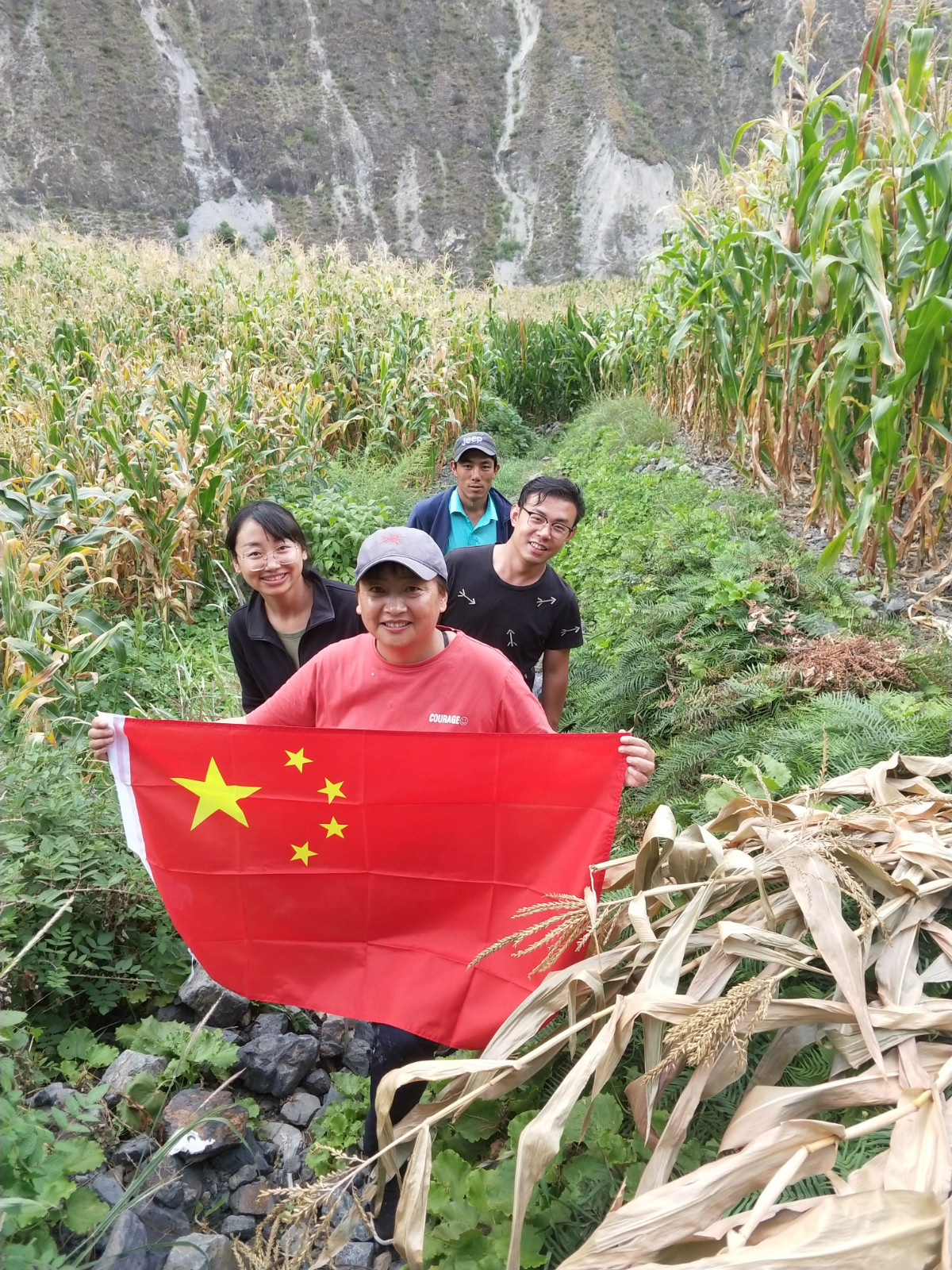Some people regard working in a remote village as a hardship that they hope finishes as soon as possible. But Luo Hongying sees it as an opportunity to devote her efforts to helping her people in the Tibet autonomous region.

Luo Hongying (front) and her colleagues work in a remote village in Tibet's Zayul county last year. (Photo: China Daily)
"Having a thankful heart is the secret of my happiness, whenever and whatever I do," said Luo, an associate professor at the regional agriculture and animal husbandry college in Nyingchi city.
The 49-year-old said setbacks and discontent are inevitable in life, but being thankful for what you have can generate a positive energy. "I also have unpleasant moments and distress like other people, but I am grateful that I can breathe the fresh air and enjoy the sunshine on the plateau, which people may not have in other places," Luo said.
A member of the Monba ethnic group, Luo has also worked as a government official in the remote Kibu village, Tsawarong township, in Zayul county, since August.
But Luo has another string to her bow.
After studying water conservation and hydropower, she is expected to graduate with her doctorate from Wuhan University, Hubei province, later this year.
If she gains her PhD, she will become the first Monba to achieve the academic goal. It would also mean that people from 54 of China's 56 ethnic groups have gained a doctorate.
The Monba are one of the smallest ethnic groups in China numbering just 10,000 people, according to the sixth national census in 2010.
They mainly live in the southeastern part of Tibet. More than 77 percent of the Monba population was illiterate in the 1990s, according to a report by Wuhan-based Changjiang Daily.
"Obtaining a doctoral degree is important not only to me, but also to the whole ethnic group," Luo said.
Village person
In August, Luo and her colleagues drove more than 800 kilometers in two days through mountainous terrain to Kibu village to help serve the needs of the local residents.
Luo and her four-member team were scheduled to stay until December, and chief among their aims was to help the locals understand and use a new stable electricity supply.
All but four of 40 village households had been connected to the new power supply.
"Most villagers only knew how to use solar power, so I conducted power usage training for them and I instructed the villagers how to safely use electricity," she said.
Luo's team also proposed to the Tsawarong township that they provide 400,000 yuan ($57,300) so that the village could set up a supermarket and a teahouse.
Rescue mission
Kibu is located in steep and treacherous terrain, and when two of the villagers fell ill in August it was up to Luo to get them to a hospital.
A woman in her 40s had had a stroke, while a 7-year-old child was suffering from loss of bladder and bowel control.
They hired a van to take them from Kibu to Dongshan county, Yunnan province, from where they took buses to Kunming.
In all, Luo and the two patients traveled more than three days to get to Kunming for medical treatment.
"From 6 am to late in the evenings, for one month, I helped the two patients in everything, from interpreter to traffic guide," Luo said.
"It was really hard to get all the things done by myself in a strange place, however, what I did was really worthwhile as the two of them have almost recovered now."
Duty bound
Luo's mission to work in the rural village was supposed to be finished by late last month. However, the projects they had discussed-such as the teahouse, the supermarket and a pomegranate plantation in the village-are in the process of final inspection and approval by the government.
Luo's work mission to Kibu has been extended until later this month.
"I had to work longer in the village," she said.
"I missed spending more time with my family, however, I have no complaints or regrets. The government has given me a lot, and I would not have obtained what I have today without the care and support of the government.
"I am always grateful to the government and my own people, and I hope what I have been doing will become a minor part of my paying back what I gained from the government."


